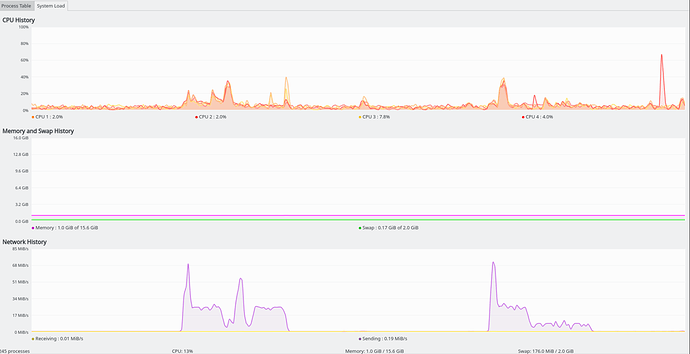Hello,
I’m hoping to get some help on this playback problem because I tried many things, but I’ve not been successful to debug it do far.
For the past few weeks I wasn’t able to see a single video without it stopping multiple times. The systems is almost unusable. I understand that this might be a network issue, but my Linux knowledge is evidently limited.
The server is connected through a wired connection to the vero 4k+ (the vero is connected directly to the router, while the server is connected to an access point that is wired connected to the router. All cables are gigabit cables and iperf3 looks good (constant around 950MB/s). I shutdown all unneeded services on the server.
the server share is nfs mounted through fstab
I started having this problem with the previous 4k a few weeks back, so I switched to the 4k+ that I bought a while ago but never took out of the box, but the problem persists.
The server system monitor looks like this:
At the bottom right you see that the video begins and after a while the sent data rate goes to zero. At that point the video is still playing and will eventually stop after several seconds. This happens many times for each single video sometimes after a few seconds, sometimes after 30-40 minutes. The internet connection is alive at this point. If I ssh to osmc, during the period between the sent data going to zero and the video eventually stopping, I can see the all the server files in the mounted directory.
debug log is at: https://paste.osmc.tv/iqunulekej
Any idea is welcome. I already replaced the two short ethernet cable that connect server and 4k+ to the router. I also bought a replacement cable for the connection router/access point but I’m a little hesitant because the cable is in the wall so it is quite a bit of work to replace it.
Router and access point firmware are all updated.
Server uses Arch Linux
Thanks!
